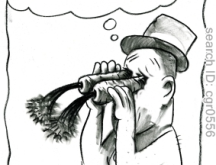Mr. Innes’s next point is that the idea, that “in modern days a money-saving device has been introduced called credit, and that, before this device was known, all purchases were paid for in cash, in other words in coins,” is simply a popular fallacy. The use of credit, he thinks, is far older than that of cash. The numerous instances, he adduces in support of this, from very remote times are certainly interesting … Mr. Innes’s development of this thesis is of unquestionable...
Read More »Papa was a rolling stone
Papa was a rolling stone .[embedded content]
Read More »The epistemic fallacy
it is not the fact that science occurs that gives the world a structure such that it can be known by men. Rather, it is the fact that the world has such a structure that makes science, whether or not it actually occurs, possible. That is to say, it is not the character of science that imposes a determinate pattern or order on the world; but the order of the world that, under certain determinate conditions, makes possible the cluster of activities we call ‘science’. It does...
Read More »Sunshine of your love
Sunshine of your love .[embedded content]
Read More »Comment mesurer le racisme et les discriminations raciales
Comment mesurer le racisme et les discriminations raciales .[embedded content] Et ici le Rapport de recherche TEPP.
Read More »Ritva Syll In Memoriam (personal)
Ritva Syll In Memoriam (personal) .[embedded content] In loving memory of my mother-in-law, Ritva Syll, whose funeral took place yesterday at Skeda church, Sweden.
Read More »Real business cycles — nonsense on stilts
Real business cycles — nonsense on stilts They try to explain business cycles solely as problems of information, such as asymmetries and imperfections in the information agents have. Those assumptions are just as arbitrary as the institutional rigidities and inertia they find objectionable in other theories of business fluctuations … I try to point out how incapable the new equilibrium business cycles models are of explaining the most obvious observed facts...
Read More »Structural equation modelling (student stuff)
Structural equation modelling (student stuff) .[embedded content] This is a good introduction to some of the basic thoughts behind the use of SEMs. But — for the controversial question if SEMs really can be considered causal, yours truly highly recommends reading Kenneth Bollen’s and Judea Pearl’s Eight myths about causality and structural equation models.
Read More »Table 2 Fallacy (student stuff)
Table 2 Fallacy (student stuff) .[embedded content]
Read More »Discrimination and the use of ‘statistical controls’
The gender pay gap is a fact that, sad to say, to a non-negligible extent is the result of discrimination. And even though many women are not deliberately discriminated against, but rather self-select into lower-wage jobs, this in no way magically explains away the discrimination gap. As decades of socialization research has shown, women may be ‘structural’ victims of impersonal social mechanisms that in different ways aggrieve them. Wage discrimination is unacceptable. Wage...
Read More » Lars P. Syll
Lars P. Syll




